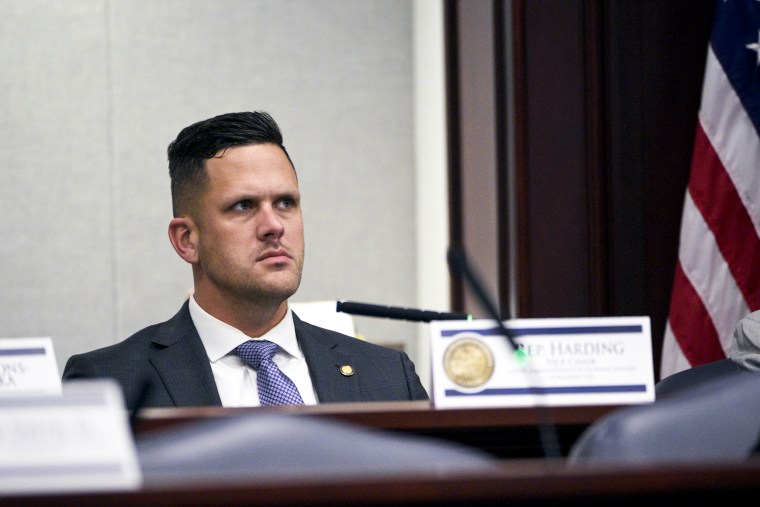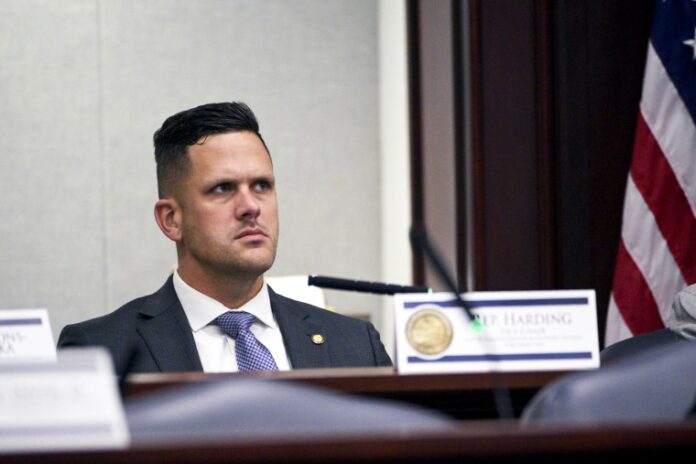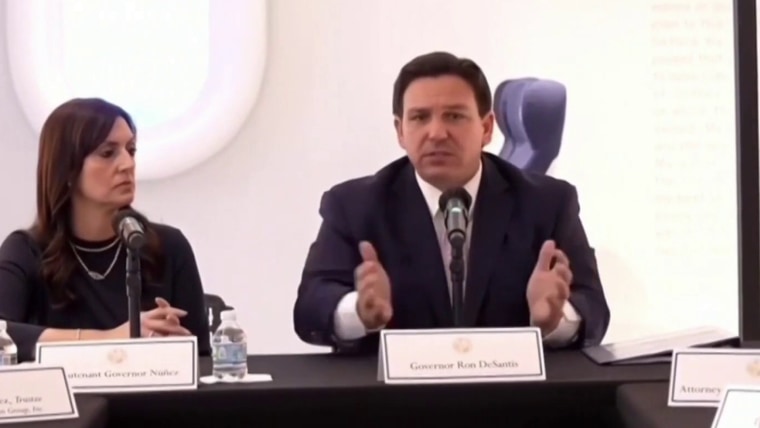Florida’s House of Representatives passed a bill Thursday that would prohibit “classroom discussion about sexual orientation or gender identity” in the state’s primary schools.
The legislation — titled the Parental Rights in Education bill but dubbed by critics the “Don’t Say Gay” bill — heads to the state’s Republican-held Senate, where it is expected to pass. Gov. Ron DeSantis, a Republican who is running for re-election and is widely considered to be a potential 2024 presidential candidate, has previously signaled his support for the legislation and is expected to sign it into law.
Thursday’s 69-47 vote comes after weeks of national outrage over the measure, which has grabbed the attention of international newspapers, Hollywood actors and the White House.
Speaking to legislators on the House floor, Rep. Joe Harding, the Republican who introduced the bill, said the measure is about “empowering parents” and improving the quality of life for the state’s children.

“Creating boundaries at an early age of what is appropriate in our schools, when we are funding our schools, is not hate,” Harding said. “It’s actually providing boundaries, and it’s fair to our teachers and our school districts to know what we expect.”
Harding has repeatedly stressed that the bill would not prohibit students from talking about their LGBTQ families or bar classroom discussions about LGBTQ history, including events like the 2016 attack on the Pulse nightclub, a gay club in Orlando.
But critics have said the broad language of the legislation could open districts to lawsuits from parents who believe any conversation about LGBTQ people or issues to be inappropriate.
In an impassioned speech on the House floor Thursday, Rep. Carlos Guillermo Smith, a Democrat who is gay, told lawmakers that he purposefully wore a rainbow Pride ribbon upside down on his lapel “as a symbol that LGBTQ community in Florida is in distress.”
“We are in distress because this bill is yet another attack on our community,” Smith said. “This bill goes way beyond the text on its page. It sends a terrible message to our youth that there is something so wrong, so inappropriate, so dangerous about this topic that we have to censor it from classroom instruction.”
Other opponents spoke about the potential harm the bill could inflict on the state’s LGBTQ youths, citing the population’s harrowing mental health struggles.
A national survey by the Trevor Project, an LGBTQ youth suicide prevention and intervention group, found that 42 percent of LGBTQ youths seriously considered attempting suicide last year. More than half of transgender and nonbinary youths who were surveyed seriously considered suicide, it also found.
Separately, the Trevor Project found that LGBTQ youths who reported having at least one LGBTQ-affirming space had lower rates of attempting suicide.
“Lawmakers should be supporting LGBTQ students and their families and encouraging schools to be inclusive, not pitting parents against teachers and erasing the LGBTQ community from public education,” Amit Paley, the project’s CEO and executive director, said in a statement. “When lawmakers treat LGBTQ topics as taboo and brand our community as unfit for the classroom, it only adds to the existing stigma and discrimination, which puts LGBTQ young people at greater risk for bullying, depression and suicide.”
Democrats also argued that the legislation’s text makes it unclear what age groups the bill could apply to. The bill says discussions about “sexual orientation or gender identity may not occur in kindergarten through grade 3 or in a manner that is not age appropriate or developmentally appropriate for students in accordance with state standards.”
Rep. Michael Grieco, a Democrat, told fellow legislators, “Anybody who says that this bill is only about kindergarten through third grade is either mistaken or flat-out lying.”
In addition to the “Don’t Say Gay” bill in Florida, 15 other bills are under consideration in eight states that would limit speech about LGBTQ identities in classrooms, according to PEN American, a nonprofit group that advocates for free speech. Three states passed similar bills last year — commonly referred to as “no promo homo” laws — that allow parents to opt students out of any lesson or coursework that mentions sexual orientation or gender identity, according to GLSEN, an advocacy group that aims to end LGBTQ discrimination in education.
And in less than two months this year, conservative state legislators have filed more than 170 anti-LGBTQ bills — already surpassing last year’s 139 total — according to Freedom for All Americans. The nonprofit group, which advocates for LGBTQ nondiscrimination protections nationwide, previously said it didn’t track LGBTQ school policy bills last year, as it was not as much of a “sweeping trend” as it is now.
Most of this year’s proposed anti-LGBTQ legislation — at least 92 bills — target trans people specifically.
The White House did not immediately respond to a request for comment. President Joe Biden has previously rebuked Florida’s “Don’t Say Gay” bill, vowing to “fight for the protections and safety” of LGBTQ youths.
Speaking on the House floor, Smith echoed Biden’s sentiment.
“I want to make sure that for those LGBTQ youth in Florida and around the country and in the world who are watching, I want to make sure that they know this: You are loved. You are supported. And we will wake up every single day to fight for you, because you are worth fighting for,” Smith said.









